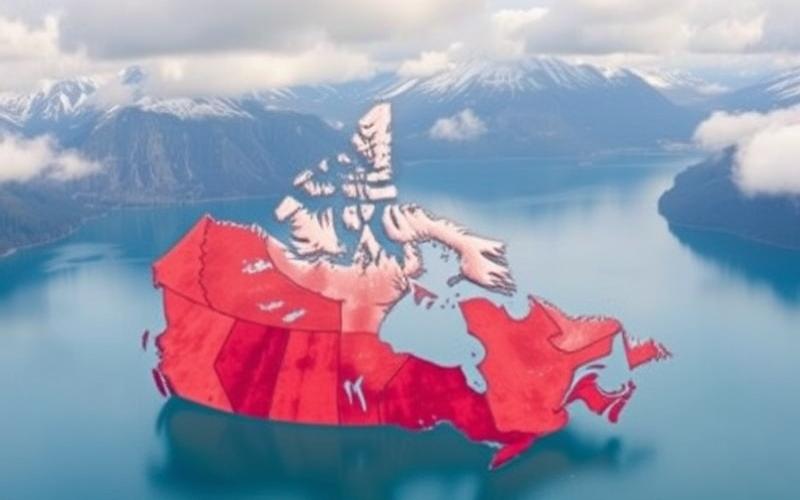
 Published on and written by Cyril Jarnias
Published on and written by Cyril Jarnias
Seasonal rentals in Canada have experienced significant growth in recent years, offering promising opportunities for property owners and real estate investors. Whether it’s a lakeside cottage in Ontario, an apartment in downtown Montreal, or a vacation home in the Rockies, the Canadian market is full of opportunities to generate attractive rental income. Discover the advantages of this growing sector and the keys to success in seasonal rentals in Canada.
Attractive Income Potential in a Dynamic Market
Seasonal rentals in Canada can indeed prove to be a lucrative income source for savvy property owners. Several factors contribute to making this market particularly interesting:
– Consistently rising tourist demand, with over 22 million international visitors in 2019 (pre-pandemic) – Diverse and attractive destinations, from cosmopolitan cities to breathtaking natural landscapes – High purchasing power of tourists, particularly Americans and Europeans – Marked seasonality that allows for maximizing income during certain periods (summer, winter holidays)
According to AirDNA data, the average monthly revenue for a vacation rental in Canada was approximately $2,500 CAD in 2022, with peaks reaching up to $5,000 CAD in the most sought-after destinations like Vancouver or Whistler. Average occupancy rates range between 50% and 70% annually, with peaks exceeding 80% during high season.
The most profitable cities for seasonal rentals in Canada include:
- Toronto: average monthly revenue of $3,200 CAD
- Vancouver: $3,800 CAD
- Montreal: $2,900 CAD
- Quebec City: $2,600 CAD
- Whistler: $4,500 CAD (during high season)
These figures demonstrate the attractive potential of seasonal rentals in Canada for property owners and real estate investors.
Vacation Rental Advantages: Flexibility and Optimized Returns
Seasonal rentals offer numerous advantages compared to traditional long-term leases:
Increased flexibility: You maintain control over your property and can use it yourself whenever you wish. This is ideal for a secondary residence that you use occasionally.
Potentially higher income: By optimizing your rates based on seasonality and demand, you can generate higher revenue than with traditional rentals, especially in popular tourist areas.
Risk diversification: You don’t depend on a single long-term tenant, which limits the risk of unpaid rent.
Property value enhancement: Regular maintenance and quality equipment required for seasonal rentals help maintain, or even increase, your property’s value.
A rewarding experience: Hosting travelers from around the world can be an exciting human adventure and allow you to develop new skills.
Good to know:
Seasonal rentals do require more involvement than long-term leases, but they also offer significantly higher return potential, especially in Canada’s popular tourist destinations.
Optimizing Property Management: Keys to Success
To get the most out of your seasonal rental investment in Canada, effective management is crucial. Here are some tips to optimize your operations:
Automate your processes: Use specialized management tools like Smoobu or Lodgify to centralize your bookings, automate communications, and simplify your accounting.
Focus on presentation: Quality photos, detailed descriptions, and positive reviews are essential for attracting travelers on booking platforms.
Optimize your pricing: Adjust your prices based on seasonality, local events, and competition to maximize your occupancy rate and revenue.
Provide quality hospitality: An impeccable property, thoughtful touches, and responsive communication will make the difference in obtaining excellent reviews.
Outsource if necessary: If you can’t manage your property yourself, hire a specialized concierge service that will handle everything for you, for a commission (typically between 20% and 30% of revenue).
Diversify your distribution channels: Don’t limit yourself to Airbnb; also use Booking.com, Vrbo, and other platforms to maximize your visibility.
Good to know:
Professional and attentive management of your seasonal rental is key to retaining customers, obtaining excellent reviews, and optimizing your long-term revenue.
Seasonal rentals in Canada are subject to various regulations that differ by province and municipality. It’s crucial to research the rules in effect in your area to avoid any legal issues.
Permits and registration: Many Canadian cities now require a permit or registration for short-term rentals. This is notably the case in Toronto, Vancouver, and Montreal.
Duration limitations: Some municipalities impose a maximum rental duration per year. In Toronto, for example, you can only rent your primary residence for 180 days per year as a short-term rental.
Taxes: Seasonal rental income is taxable in Canada. You’ll also need to collect and remit the tourist accommodation tax in most provinces.
Insurance: Verify that your home insurance adequately covers seasonal rentals, or purchase specific insurance.
Condominium rules: If your property is a condominium, ensure the regulations permit short-term rentals.
Safety: Comply with current safety standards (smoke detectors, fire extinguishers, etc.) to ensure your guests’ well-being.
Good to know:
Regulations in this sector are evolving rapidly. Stay informed about legislative changes and adapt your business accordingly to avoid any legal risks.
Conclusion: A Promising Market That Requires Involvement
Seasonal rentals in Canada offer excellent opportunities for property owners and real estate investors. With growing tourist demand and diverse, attractive destinations, the income potential is real. However, succeeding in this sector requires good preparation, rigorous management, and compliance with local regulations.
By learning best practices, using appropriate tools, and providing quality service, you can maximize your investment returns and fully enjoy the benefits of seasonal rentals in Canada.
Disclaimer: The information provided on this website is for informational purposes only and does not constitute financial, legal, or professional advice. We encourage you to consult qualified experts before making any investment, real estate, or expatriation decisions. Although we strive to maintain up-to-date and accurate information, we do not guarantee the completeness, accuracy, or timeliness of the proposed content. As investment and expatriation involve risks, we disclaim any liability for potential losses or damages arising from the use of this site. Your use of this site confirms your acceptance of these terms and your understanding of the associated risks.



















